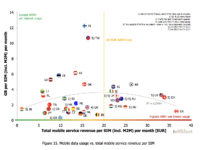Earlier this year, access to information documents obtained by the Forum for Research and Policy in Communications revealed that Bell had presented its plan for website blocking to CRTC officials months before it was formally filed to allow for public review and comment. As far back as July 2017, Bell pressed a CRTC commissioner for a meeting, which led to a Commission presentation in September 2017. The CRTC downplayed the meeting, telling reporters in response to queries that there was a meeting with Commission legal staff on September 21, 2017.
Latest Posts
Court Rules Quebec Plan for Mandated ISP Blocking of Online Gambling Sites is Unconstitutional
The Quebec Superior Court has ruled that the provincial rules creating a mandated ISP blocking system for unlicensed online gambling sites is unconstitutional. The provincial government introduced the rules in 2015, which create a list of unlicensed sites that ISPs must block or face financial penalties. While the government tried to frame the blocking system as a health and safety measure, it was always obvious from its own documentation that the plan was primarily focused on increasing revenues of Loto-Quebec, a provincially licensed online gambling site.
The First Rule of Copyright Reform: Don’t Mess With Free Speech and Net Neutrality
Countries around the world have been actively rethinking copyright for the digital age, grappling with the potential for the Internet and new technologies to facilitate new creativity and business models as well as the need for fair remuneration for content creators. The European Union has been particularly active on the issue with a two-year copyright reform process that was billed as providing an update for the digital environment.
As the process neared its conclusion earlier this month, the European Parliament experienced the equivalent of a copyright political earthquake. My Globe and Mail op-ed notes that hundreds of elected officials shocked observers by voting against quick approval of a reform package that would have led to blocked access to thousands of legitimate works through upload content filters alongside new “link taxes” that would have charged sites for linking to news stories online.
The State of Canadian Wireless in One Chart: No One Has Carriers That Generate More Revenue With Less Usage
Tefficient has released a new report on global wireless market that makes it clear that Canada is a global outlier (or leader if you are a telecom executive). Simply put, no one has carriers that generate more revenue with less usage per SIM than Canada.











